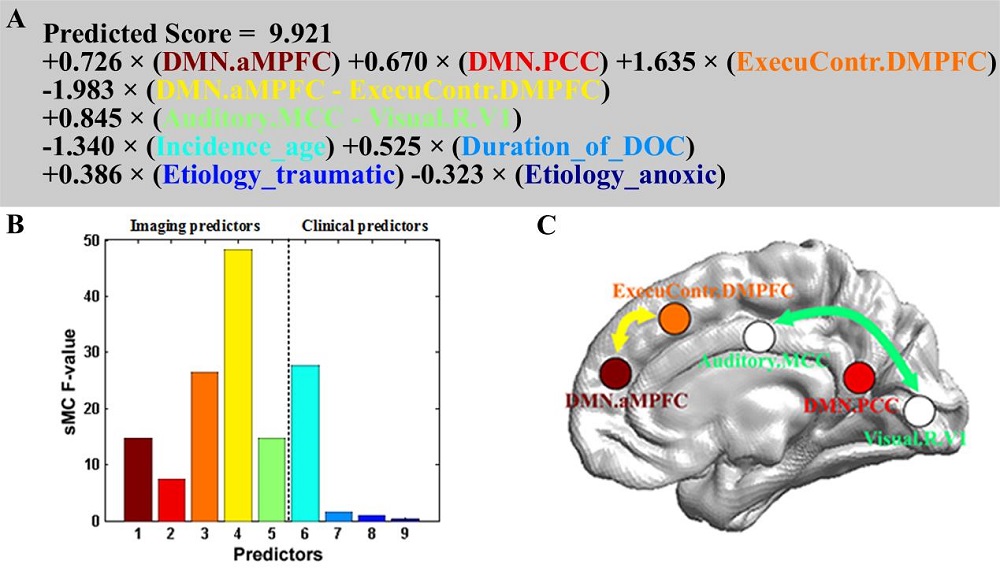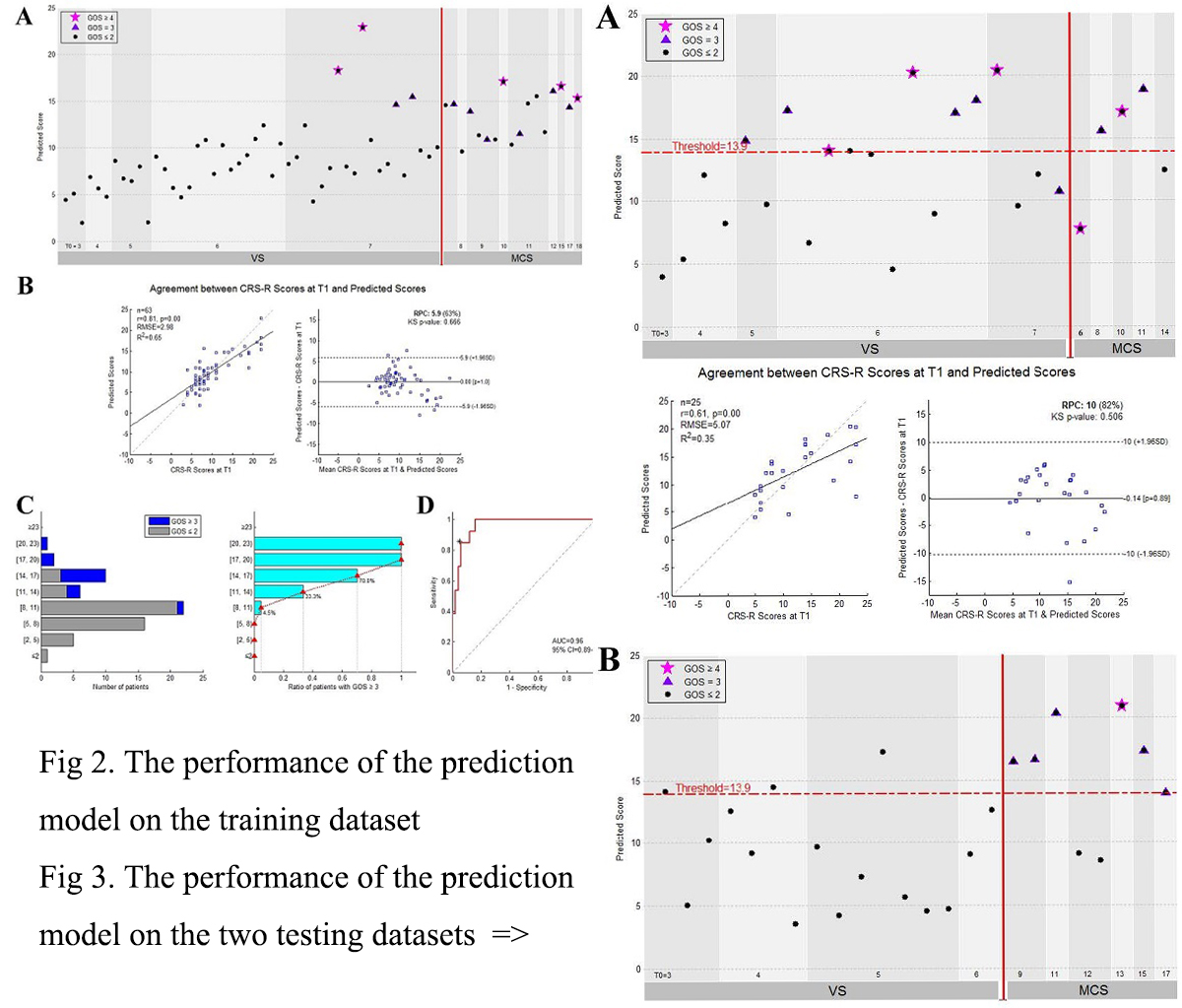Prognostication of chronic disorders of consciousness using brain functional networks and clinical characteristics
Ming Song1,2*, Yi Yang3*, Jianghong He3, Zhengyi Yang1,2, Shan Yu1,2, Qiuyou Xie4, Xiaoyu Xia3, Yuanyuan Dang3, Qiang Zhang3, Xinhuai Wu5, Yue Cui1,2, Bing Hou1,2, Ronghao Yu4, Ruxiang Xu3, Tianzi Jiang1,2,6,7,8
*These authors contributed equally to this work.
1National Laboratory of Pattern Recognition, Institute of Automation, The Chinese Academy of Sciences, Beijing 100190, China
2Brainnetome Center, Institute of Automation, The Chinese Academy of Sciences, Beijing 100190, China
3Department of Neurosurgery, PLA Army General Hospital, Beijing 100700, China
4Centre for Hyperbaric Oxygen and Neurorehabilitation, Guangzhou General Hospital of Guangzhou Military Command, Guangzhou 510010, China
5Department of Radiology, PLA Army General Hospital, Beijing 100700, China
6CAS Center for Excellence in Brain Science and Intelligence Technology, Chinese Academy of Sciences, Beijing 100190, China
7Key Laboratory for Neuroinformation of the Ministry of Education, School of Life Science and Technology, University of Electronic Science and Technology of China, Chengdu 625014, China
8The Queensland Brain Institute, University of Queensland, Brisbane, QLD 4072, Australia
Abstract
Disorders of consciousness are a heterogeneous mixture of different diseases or injuries. Although some indicators and models have been proposed for prognostication, any single method when used alone carries a high risk of false prediction. This study aimed to develop a multidomain prognostic model that combines resting state functional MRI with three clinical characteristics to predict one year outcomes at the single-subject level. The model discriminated between patients who would later recover consciousness and those who would not with an accuracy of around 90% on three datasets from two medical centers. It was also able to identify the prognostic importance of different predictors, including brain functions and clinical characteristics. To our knowledge, this is the first implementation reported of a multidomain prognostic model based on resting state functional MRI and clinical characteristics in chronic disorders of consciousness. We therefore suggest that this novel prognostic model is accurate, robust, and interpretable.
Keywords: disorders of consciousness; prognosis; resting state fMRI; functional connectivity; brain network

Fig 1. Prognostic regression model

